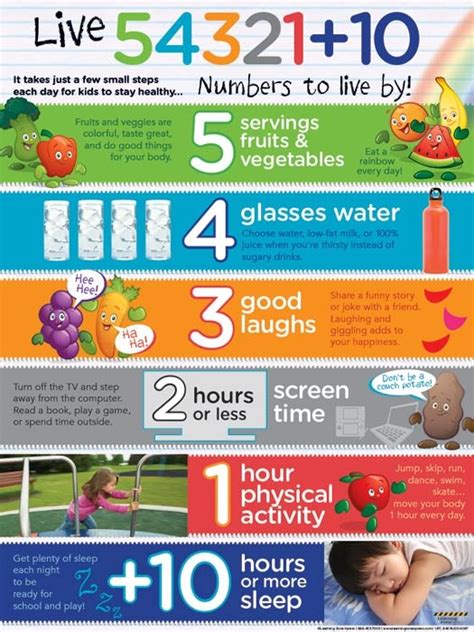Intro
Discover a balanced Healthy Diet Plan with nutrient-rich foods, portion control, and mindful eating habits, incorporating weight loss tips, meal planning, and nutrition advice for a sustainable lifestyle.
A well-structured healthy diet plan is essential for maintaining overall health and wellbeing. With the numerous diet plans available, it can be overwhelming to choose the right one that suits your needs. A healthy diet plan should provide the body with the necessary nutrients, vitamins, and minerals to function optimally. In this article, we will explore the importance of a healthy diet plan, its benefits, and provide guidance on how to create a personalized plan.
Eating a healthy diet is crucial for preventing chronic diseases such as heart disease, diabetes, and certain types of cancer. A healthy diet plan can also help with weight management, improve mental health, and increase energy levels. With the rise of fast food and processed meals, it is easy to get caught up in unhealthy eating habits. However, with a little planning and knowledge, it is possible to create a healthy diet plan that is tailored to your individual needs.
A healthy diet plan should be based on whole, unprocessed foods such as fruits, vegetables, whole grains, lean proteins, and healthy fats. These foods provide the body with the necessary nutrients, vitamins, and minerals to function optimally. It is also important to limit or avoid foods that are high in added sugars, saturated fats, and sodium. By making informed food choices, you can reduce your risk of chronic diseases and maintain overall health and wellbeing.
Benefits of a Healthy Diet Plan

A healthy diet plan has numerous benefits, including weight management, improved mental health, and increased energy levels. Eating a healthy diet can also help to prevent chronic diseases such as heart disease, diabetes, and certain types of cancer. A healthy diet plan can also improve cognitive function, boost the immune system, and support healthy bones and teeth. By incorporating physical activity into your daily routine, you can further enhance the benefits of a healthy diet plan.
Some of the key benefits of a healthy diet plan include:
- Weight management: A healthy diet plan can help with weight loss and maintenance, reducing the risk of obesity-related diseases.
- Improved mental health: A healthy diet plan has been shown to improve mental health, reducing the risk of depression and anxiety.
- Increased energy levels: Eating a healthy diet can provide the body with the necessary nutrients and vitamins to function optimally, increasing energy levels and reducing fatigue.
- Chronic disease prevention: A healthy diet plan can help to prevent chronic diseases such as heart disease, diabetes, and certain types of cancer.
- Improved cognitive function: A healthy diet plan has been shown to improve cognitive function, reducing the risk of age-related cognitive decline.
Creating a Personalized Healthy Diet Plan
Creating a personalized healthy diet plan involves setting realistic goals, assessing your nutritional needs, and planning your meals. It is essential to consider your lifestyle, dietary preferences, and health goals when creating a healthy diet plan. You should also consult with a healthcare professional or registered dietitian to ensure that your diet plan is tailored to your individual needs.Some steps to create a personalized healthy diet plan include:
- Setting realistic goals: Set specific, measurable, and achievable goals, such as losing weight or improving overall health.
- Assessing your nutritional needs: Consider your age, sex, weight, height, and activity level to determine your nutritional needs.
- Planning your meals: Plan your meals in advance, considering your dietary preferences and health goals.
- Keeping track of your progress: Keep a food diary or use a mobile app to track your progress and make adjustments to your diet plan as needed.
Key Components of a Healthy Diet Plan

A healthy diet plan should include a variety of whole, unprocessed foods such as fruits, vegetables, whole grains, lean proteins, and healthy fats. These foods provide the body with the necessary nutrients, vitamins, and minerals to function optimally. It is also essential to limit or avoid foods that are high in added sugars, saturated fats, and sodium.
Some key components of a healthy diet plan include:
- Fruits: Aim for at least 2-3 servings of fruits per day, including a variety of colors and types.
- Vegetables: Aim for at least 3-5 servings of vegetables per day, including a variety of colors and types.
- Whole grains: Choose whole grains such as brown rice, quinoa, and whole wheat bread instead of refined or processed grains.
- Lean proteins: Include lean protein sources such as poultry, fish, and legumes in your diet plan.
- Healthy fats: Include healthy fats such as nuts, seeds, and avocados in your diet plan.
Common Mistakes to Avoid
When creating a healthy diet plan, it is essential to avoid common mistakes such as restrictive eating, overindulging in unhealthy foods, and neglecting to stay hydrated. Restrictive eating can lead to nutrient deficiencies and disordered eating, while overindulging in unhealthy foods can hinder weight loss and overall health.Some common mistakes to avoid include:
- Restrictive eating: Avoid restrictive eating patterns, such as severely limiting calorie intake or cutting out entire food groups.
- Overindulging in unhealthy foods: Limit or avoid foods that are high in added sugars, saturated fats, and sodium.
- Neglecting to stay hydrated: Drink plenty of water throughout the day, aiming for at least 8 cups (64 ounces) per day.
Staying Motivated and Accountable

Staying motivated and accountable is crucial for maintaining a healthy diet plan. It is essential to find healthy ways to cope with stress and emotions, such as exercise, meditation, or talking to a friend. You should also celebrate your successes and don't be too hard on yourself if you slip up.
Some ways to stay motivated and accountable include:
- Finding a support system: Share your diet plan with a friend or family member and ask for their support.
- Tracking your progress: Keep a food diary or use a mobile app to track your progress and make adjustments to your diet plan as needed.
- Celebrating your successes: Reward yourself for reaching milestones, such as losing a certain amount of weight or completing a challenging workout.
Overcoming Common Challenges
When following a healthy diet plan, it is common to encounter challenges such as cravings, social pressures, and emotional eating. It is essential to find healthy ways to cope with these challenges, such as finding healthy alternatives to unhealthy foods or practicing mindfulness.Some common challenges and how to overcome them include:
- Cravings: Find healthy alternatives to unhealthy foods, such as choosing fruits or vegetables instead of junk food.
- Social pressures: Plan ahead and bring healthy snacks or meals to social gatherings, and don't be afraid to say no to unhealthy foods.
- Emotional eating: Practice mindfulness and find healthy ways to cope with emotions, such as exercise, meditation, or talking to a friend.
Conclusion and Next Steps

In conclusion, a healthy diet plan is essential for maintaining overall health and wellbeing. By creating a personalized plan, avoiding common mistakes, and staying motivated and accountable, you can achieve your health goals and maintain a healthy diet plan. Remember to be patient and kind to yourself, and don't be afraid to seek help if you need it.
Some next steps to take include:
- Consulting with a healthcare professional or registered dietitian to create a personalized diet plan.
- Starting small and making gradual changes to your diet and lifestyle.
- Finding healthy ways to cope with stress and emotions, such as exercise, meditation, or talking to a friend.
What is a healthy diet plan?
+A healthy diet plan is a personalized plan that provides the body with the necessary nutrients, vitamins, and minerals to function optimally, while also promoting overall health and wellbeing.
How do I create a personalized healthy diet plan?
+To create a personalized healthy diet plan, you should set realistic goals, assess your nutritional needs, and plan your meals, considering your lifestyle, dietary preferences, and health goals.
What are some common mistakes to avoid when following a healthy diet plan?
+Some common mistakes to avoid include restrictive eating, overindulging in unhealthy foods, and neglecting to stay hydrated, as these can hinder weight loss and overall health.
We hope this article has provided you with the necessary information and guidance to create a personalized healthy diet plan. Remember to stay motivated and accountable, and don't be afraid to seek help if you need it. Share your thoughts and experiences in the comments below, and don't forget to share this article with your friends and family who may benefit from it.
